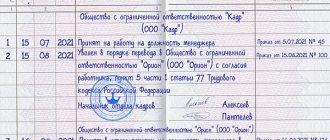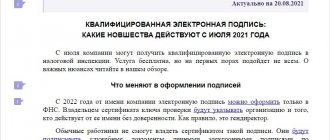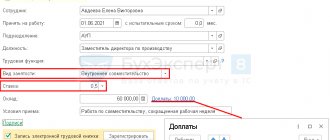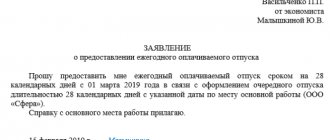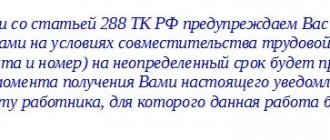Legal regulation of part-time work
This type of labor relationship, such as part-time work, which arises as a result of the execution of an appropriate agreement, is regulated by the provisions of labor legislation. In particular, the provisions of Art. 60.1 Labor Code of the Russian Federation.
This norm indicates that a citizen, in addition to performing the duties of his position, can perform additional duties of labor significance. However, he does not do this during the main working day. This mode of employment is called part-time employment.
The special features of this type of employment are prescribed in Art. 44 Labor Code of the Russian Federation. Currently, part-time work is not prohibited. A person can enter into agreements with several companies. This suggests that the CEO also has a similar right.
Here it is worth paying attention to the fact that the legal status of the management team is reflected in a special order. Provisions of Art. 276 of labor legislation indicates that the general director has the opportunity to work part-time. At the same time, a condition is introduced that presupposes the need to obtain permission from the founders of the company to conduct such activities.
The permitting procedure is prescribed in the specified norm. It establishes that the minutes of the meeting indicate the possibility of hiring a director on a part-time basis.
Regulatory regulation
Article 276 of the Labor Code of the Russian Federation allows you to formalize labor relations with the head of an organization on a part-time basis. A prerequisite for this is the permission of the property owner.
According to Art. 273 of the Labor Code of the Russian Federation, if the director is the only founder of the company and the owner of the property, the decision is made independently, permitting documents from higher authorities are not required.
Clause 3 art. 69 of the Law “On Joint Stock Companies” allows a director, including a general director, to work as a manager in other companies only after receiving written approval from the board of directors.
Federal Law No. 161 prohibits directors of unitary companies from:
- organize your own enterprises;
- work in public services;
- be an individual entrepreneur;
- work as a commercial education manager.
The exceptions are: creativity, pedagogy and scientific work.
The Law “On Banks and Banking Activities” prohibits a bank director from:
- hold the position of director in another bank at the same time;
- work in companies providing leasing services;
- be a participant in the securities market;
- work in insurance organizations.
Art. 282, 329 of the Labor Code of the Russian Federation prohibit combining labor functions for persons who fall under one of the conditions:
- work in government agencies, including regulatory authorities;
- not reaching the age of majority;
- activities involving driving;
- being in difficult, harmful production conditions.
Can the CEO work part-time?
The general rule indicates that a person holding the position of general director in a company is vested with the right to conduct activities in the condition of internal or external part-time work. In this case, as stated above, it is necessary to take into account the condition according to which a citizen, if he wishes to be an external part-time worker, will need to request permission from the meeting of founders. A person who is the owner of a company has a similar right.
In addition, the owner of the organization can delegate these powers to a certain body or person. Then the general director will have to coordinate the part-time job with him.
Please note that permission is required from each organization where a person performs management functions. These rules should also be followed provided that the citizen gets a job other than a managerial position.
A situation may arise when a person at one time acts as the general director, as well as the founder of the company, as well as its owner. Then he has the opportunity not to ask for permission for new employment. If a person at his main place of work is not registered in a managerial position, and at the same time wants to become a general director, then in this case there will also be no need to obtain consent from the owner of the main company.
It is important to point out that the permit in question, issued to a citizen to work part-time with another company, is intended to exclude controversial situations. First of all, the interests of companies that are the main place of business of the person are taken into account.
The management team of the company who hires the general director on a part-time basis does not have the authority to require permission. Judicial practice indicates that the right to file claims against an employee regarding employment with another employer that is not approved by the employer, that is, in a part-time situation, is vested only in the manager in whose company the person performs management functions.
How to obtain the owner’s consent to part-time work
The procedure for obtaining a part-time work permit for the head of an organization is determined by the constituent documents of the company or an employment contract.
Several options are possible:
- holding a general meeting of the founders of a legal entity, the minutes of which serve as a resolution;
The procedure for convening and holding a general meeting of LLC participants Read more
- adoption by the sole founder of a decision to allow the manager to work part-time;
How to formalize the decision of the sole participant of an LLC? More details
- issuance of written permission without a general meeting of founders (decision of the sole participant).
If the charter stipulates the need to hold a general meeting of participants, the procedure for making a decision should also be determined, namely:
- at what number of participants the meeting is considered valid (as a rule, the presence of 100% of the founders is necessary, but it is possible to establish other standards);
- how many “for” voters are needed to make a positive decision (possible options: “the decision is made by a majority of votes”, “the decision is made by a majority of at least two-thirds of the votes of the total number of participants”).
Permission to work part-time as a director
The legislation does not reflect the procedure in accordance with which a work permit is issued in the conditions under consideration. This indicates that this procedure should be specified in the employment agreement or statutory documentation. In addition, a rational point of view is to prescribe an answer to the question of whether the general director can work part-time.
The company has the right to establish a ban on such activities. If there is a violation of the prohibition, then it is permissible to prescribe a disciplinary punishment, including termination of the employment relationship. The norm of Art. should be used. 81 labor legislation.
Sometimes exceptional situations are prescribed in the statutory documentation. This is expressed in the fact that the company allows the general director to work part-time when such activities are carried out in the interests of the company.
For example, we are talking about holding a part-time position in a subsidiary. For some organizational and legal forms, legislative acts establish restrictions on work in the situation in question. It refers to:
- To the director who works in a municipal unitary enterprise. They cannot engage in other types of activities, provided that they are paid. This is stipulated in the law adopted at the federal level in 2002, number 161. The ban is due to the fact that the work is paid, but employees do not have the right to it. The exception is creativity or pedagogy.
- Management of the joint stock company. The ban is spelled out in federal legislation dated 1995 under No. 208. The act reflects all persons who are entitled to obtain permission to occupy a leadership position in another organization. These functions are vested in the supervisory board.
However, these rules are not reflected in the legislation regarding LLCs. We can come to the conclusion that a citizen working as a general director has the right to work part-time if the rules of Art. 276 labor legislation.
Analytics Publications
In this article, for convenience of presentation, we will refer to the sole executive body as “manager” or “director”.
Article 276 of the Labor Code (hereinafter referred to as the “Labor Code of the Russian Federation”) provides for the possibility of external part-time work for the head of an organization only subject to obtaining the consent of the main employer.
The desire of the legislator to regulate the work of a director on an external part-time basis is quite understandable - the director manages the current activities of the company, has access to all documentation (including data from clients and suppliers) and manages the company with the aim of generating profit for the latter.
However, in addition to convenience (for example, when a person is appointed as a director in several companies belonging to the same group), part-time work also carries some risks, which will be discussed below.
What is the risk of the main employer in the case of an external part-time director?
For the main employer, the main risk is the director running a business “on the side.” The director, having sufficient experience in managing the activities of the company of the main employer, can, if desired, organize his own competing business, entice clients and employees, and enter into agreements between his company and the employer company in order to obtain benefits. For the company that is the director’s main employer, such actions can lead to very significant losses.
The Civil Code of the Russian Federation (hereinafter referred to as the “Civil Code of the Russian Federation”) in Article 53.1 provides for the possibility for company participants to recover such losses from the director (actual damage and lost profits), which is what the plaintiffs did in case A59-1152/2015.
Arbitrage practice
The plaintiffs (two legal entities, but for brevity let’s call them “Company 1”) in case A59-1152/2015 filed a claim with the arbitration court for damages from the former director (hereinafter referred to as the “Director”).
As the courts established, the Director, as the sole participant, created another company (hereinafter referred to as “Company 2”) - a direct competitor of the plaintiffs’ business, and he also became the general director of the newly created company. In violation of the requirements of Article 276 of the Labor Code of the Russian Federation, the defendant did not obtain permission from the main employer to work part-time in Company 2.
Being the general director of Company 2, the defendant accepted part of the staff of Company 1 into Company 2 part-time, took actions to “transfer” clients to Company 2, misled contractors regarding the functioning of Company 1, and entered into unfavorable transactions for the plaintiffs between Company 1 and Company 2 , thereby causing losses to Company 1 in the amount of more than 43 million rubles.
The courts recognized the plaintiffs’ demands as legitimate, and the claim subject to satisfaction in full1. Moreover, the plaintiffs managed to foreclose on the Director’s share in Company 22 due to the insufficiency of the defendant’s funds and the absence of other property that could be foreclosed on.
We note, however, that the amount that can actually be recovered from the defendant for the losses caused is very insignificant. Therefore, when hiring a director, it is extremely important for the employer to reduce the risks of external part-time work to a minimum (how to do this will be discussed below).
Legal risks for an employer whose director works part-time
Let's look at this problem from the perspective of another company - a company in which the director works part-time.
Let's imagine a situation where a director is hired by a company and does not inform the employer that he is a director in another company. This situation may well occur, because the employer does not have the right to demand from a candidate for the position of director confirmation of the consent of the main employer in view of the prohibition established by Article 65 of the Labor Code of the Russian Federation (consent is not included in the list of documents to be presented when concluding an employment contract).
What does the employer risk in such a situation? In essence, a part-time employer bears the same risks as the main employer, i.e. risk of causing losses.
Legal risks for the director
What risks does the director himself, who works part-time in several companies, bear?
Firstly, if the consent of the main employer for external part-time work is not obtained, the director may be subject to disciplinary liability in the form of a reprimand or reprimand in accordance with Article 192 of the Labor Code of the Russian Federation. If the director continues to work part-time in another company, the main employer has the right to dismiss him under clause 5 of part 1 of Article 81 of the Labor Code of the Russian Federation for repeated performance by the employee of work duties without good reason, if he has a disciplinary sanction.
The question arises: can failure to obtain consent to external part-time work be considered a one-time gross violation of labor duties for the purposes of dismissing a director under clause 10 of part 1 of Article 81 of the Labor Code of the Russian Federation?
As follows from judicial practice (see, for example, the ruling of the Moscow Regional Court dated May 20, 2010 in case No. 33-9730), the head of a company can be dismissed on this basis if he acted contrary to the interests of society in order to obtain personal gain using means society. It must be borne in mind that, according to the resolution of the Plenum of the Supreme Court of the Russian Federation dated March 17, 2004 No. 2, “the question of whether the violation was gross is decided by the court, taking into account the specific circumstances of each case.
At the same time, the responsibility to prove that such a violation actually took place and was of a gross nature lies with the employer.”
Thus, the employer still has to prove whether, in a particular case, the director’s failure to obtain consent for external part-time work was a one-time gross violation of duties.
Secondly, the actions of the director “on the side”, without the knowledge of the main employer, subject to the infliction of losses on such employer, may lead to the recovery from the director of the losses caused under Article 53.1 of the Civil Code of the Russian Federation.
In court, the employer will have to prove the fact of causing losses to the employer (the company), their size, the illegality of the director’s actions, and the existence of a cause-and-effect relationship between the director’s actions and the adverse consequences that occurred for the company. When considering such cases, the courts do not always side with the employer.
Arbitrage practice
The director of Company 1 established his own limited liability company (Company 2) with a similar name, with a similar type of activity and without the consent of the participants of Society 1, in violation of Article 276 of the Labor Code of the Russian Federation. In addition, the Director re-registered the telephone number belonging to Company 1, which was indicated in advertisements for several years, to the newly created Company 2. Thus, the Director transferred the activities of Company 1 to Company 2, thereby causing Company 2 losses in the form of lost profits.
In a ruling dated February 2, 2012 in case No. A46-4288/2011, the Federal Arbitration Court of the West Siberian District considered that the mere presence of turnover in Company 2, as well as profits from it, cannot automatically constitute losses for Company 1. The court refused Company 1 to recover damages from the Director.
Ways to minimize the risks of external part-time work
Taking into account the above position of the courts, it is especially relevant for the employer to determine ways to minimize risks in the event of an external part-time director. Let's look at some of them.
First, you need to decide whether the company’s charter, local regulations, or employment contract can prohibit the director from working part-time in other organizations.
Considering that Article 276 of the Labor Code of the Russian Federation does not contain a direct prohibition on external part-time work for a manager, an absolute ban on part-time work in the company’s charter, employment contract, or local regulatory act (for example, in the Regulations on the Director) is a deterioration of the director’s position as an employee, and, consequently, violation of part 2 of article 9 of the Labor Code of the Russian Federation.
This conclusion is confirmed by judicial practice (see, for example, the Resolution of the Federal Arbitration Court of the West Siberian District dated March 22, 2011 in case No. A67-3910/2010, where the director challenged certain paragraphs of the Regulations on the Director, including the ban on combining positions in management bodies of other organizations).
Thus, it will not be possible to establish an absolute ban on external part-time work for a director.
What can be done?
1) It is possible to directly state in the employment contract that the director’s employment with an external employer without obtaining the consent of the main employer is grounds for termination of the employment contract with the director without payment of compensation in accordance with clause 13 of part 1 of Article 81 of the Labor Code of the Russian Federation.
In addition, it is possible to stipulate in the employment contract that the director’s participation in other legal entities is also grounds for termination of the employment contract under clause 13 of part 1 of Article 81 of the Labor Code of the Russian Federation.
Judicial practice on this basis for the dismissal of a sole executive body cannot be considered fully formed, however, there are separate judicial acts confirming the legality of including such a ground for dismissal in an employment contract (see, for example, Determination of the Moscow City Court dated November 23, 2016 No. 4g-13615/2016) .
When dismissing a director on this basis (as well as under clause 10 of part 1 of Article 81 of the Labor Code of the Russian Federation for a single gross violation of labor duties), the employer must remember to comply with the procedure for applying disciplinary sanctions provided for in Article 193 of the Labor Code of the Russian Federation. Before applying a disciplinary sanction (including dismissal), the employer must request a written explanation from the employee. If after two working days the employee does not provide the specified explanation, then a corresponding act is drawn up. The employer's order to impose a disciplinary sanction is announced to the employee against signature.
Failure to comply with the procedure for applying disciplinary sanctions set out in Article 193 of the Labor Code of the Russian Federation gives the director the right to appeal his dismissal and seek reinstatement, which is confirmed by judicial practice3.
2) In addition, additional measures of control over the activities of the director can be provided. It is logical to entrust the exercise of control to the audit commission (auditor) and prescribe in the company’s charter, as well as in a local regulatory act (for example, in the Regulations on the audit commission (auditor)) rights and obligations that correlate with the duties of the director established in the company’s charter, employment contract, as well as local regulations (for example, in the Regulations on the Director). One of the duties of the director for the purposes of internal control may be the provision of an income statement to the authorized body of the company or its participants (shareholders). The provision of such a declaration was provided for in Article 9 of draft Federal Law N 96700565-2 “On the peculiarities of regulating the work of the head of an organization” (the draft federal law was withdrawn from consideration). For failure to submit such a declaration, as well as in the event of discovery of additional income not agreed upon with the employer, the employment contract with the director may provide for disciplinary liability in the form of dismissal under clause 13 of part 1 of Article 81 of the Labor Code of the Russian Federation.
Thus, ignoring issues related to external part-time work of the sole executive body leads to significant risks for society, which, however, can be minimized by providing for the above measures of control over the activities of the director, as well as prompt response measures in the form of disciplinary sanctions.
[1] See the decision of the Arbitration Court of the Sakhalin Region dated August 11, 2015 in case No. A59-1152/2015, decision of the Fifth Arbitration Court of Appeal dated November 26, 2015 No. 05AP-9302/2015 in case No. A59-1152/2015, decision Arbitration Court of the Far Eastern District dated March 28, 2016 No. F03-566/2016 in case No. A59-1152/2015, Resolution of the Fifth Arbitration Court of Appeal dated July 28, 2016 No. 05AP-4219/2016 in case No. A59-1152/2015, Resolution of the Fifth Arbitration Court of Appeal dated September 29, 2016 No. 05AP-6430/2016 in case No. A59-1152/2015, Resolution of the Arbitration Court of the Far Eastern District dated October 13, 2016 No. F03-4657/2016 in case No. A59-1152/2015.
[2] See resolution of the Arbitration Court of the Far Eastern District dated October 13, 2016 No. F03-4657/2016 in case No. A59-1152/2015.
[3] See, for example, the appeal ruling of the Supreme Court of the Republic of Karelia dated July 24, 2015 in case No. 33-2811/2015.
Employment contract with part-time director
If we consider part-time work in essence, it acts as a citizen’s job and requires that a person needs to draw up an employment agreement. At the same time, the peculiarity is that an entry in the work book is made on the condition that the citizen himself wishes it.
In addition, the employment agreement for part-time workers is similar to a similar act drawn up at the main place of business. The main difference is that in the first situation, the documentation indicates that the citizen is conducting part-time activities.
What is the difference between part-time and combination
To understand whether a director can work part-time, you need to understand two different personnel concepts.
The combination is characterized by the following characteristics:
- all work is performed by only one employer;
- information about combining positions is included in the main contract with the employee, a separate employment contract is not concluded;
- additional job functions are performed during regular working hours;
- combining positions does not require special consent from the employer;
- an entry about the combination is not made in the work book;
- For performing several job functions, the employee receives an additional payment to the basic salary.
In practice, they usually combine positions that can be called related. For example, the chief accountant combines his position with the responsibilities of a personnel employee. In this case, there is an expansion of service areas and an increase in the volume of work, but it is impossible to predict in advance what it will be. If there is no staff turnover in the organization, then there will be no need to overwork.
In this case, the combination is beneficial to the employer, who does not need to hire a human resources specialist. But when the need for such an employee arises, the issue will be entrusted to the chief accountant, who will successfully cope with it.
But part-time work is recognized as a separate labor activity, which may not be related to the main job at all.
Let us list the features of part-time work:
- you can work part-time in another organization, and not just with your main employer;
- additional working time is allocated to perform duties, which should not exceed four hours a day;
- a separate employment contract is concluded for part-time work;
- At the request of the employee, a corresponding entry is made in the work book.
If a part-time job occurs with one employer, then it is called internal, if with different employers, it is called external. And when we are talking about the head of a company, then for external part-time work he must obtain the consent of his main employer.
This norm is fixed in Article 276 of the Labor Code of the Russian Federation: “The head of an organization can work part-time for another employer only with the permission of the authorized body of the legal entity or the owner of the organization’s property, or a person (body) authorized by the owner.”
Order to take office
From a legal point of view, the official in question begins to perform his duties in accordance with the developed order. At the same time, this act reflects the wording that the citizen begins to fulfill the duties of the general director. In addition, it will be necessary to reflect the essential provisions of this act, which are:
- date when work began;
- period of performance of duties;
- amount of remuneration;
- mandatory indication that the person works part-time.
The order reflects that the conditions for fulfilling such an obligation are the protocol developed at the general meeting. In a situation where an employment agreement has been drawn up at the main place of work, the implementation of part-time employment is carried out in the general manner. It is necessary to take into account the rules specified in the provisions of Art. 44 labor legislation.
Article 238 of the Labor Code of the Russian Federation indicates that citizens who work part-time must provide a shortened list of documentation. This includes:
- the act by which identity is verified;
- a diploma indicating that the citizen has an education;
- a certificate reflecting the type of work performed at the main place of work.
In this case, there is no need to take a certificate indicating the position that the citizen is engaged in. The management of the organization does not have the opportunity to demand the provision of acts that are not prescribed by law.
In order to avoid getting into a situation where a citizen is hired for a part-time job, provided that he is not endowed with such authority, the company management verbally asks to bring a certificate indicating the position held in the main job.
It is also worth understanding that a certain responsibility is imposed on the director if he works in the position in question. The legislation does not provide for certain provisions that affect directors who work part-time.
The management team is responsible to the employer, the same as when the place of work is the main one. If there is material damage to the company, which was the result of the activities of a citizen or his inaction, then appropriate liability is imposed on him.
Part-time work - what is it?
Part-time work is when an employee performs other work in his free time from his main job under a separate employment contract. Part-time work happens (Part 3 of Article 282 of the Labor Code of the Russian Federation):
- internal - when an employee works under several employment contracts with one employer;
- external - when an employee works simultaneously for several employers.
The number of employers is not limited by law, and if an employee manages to work in three places at the same time, then no one can prohibit him from getting a fourth job.
Salary
The legislation states that payment for work in the situation under consideration is made according to how much time the citizen has worked. At the same time, there is a time limit, no more than 4 hours per day.
The amount of payment is drawn up according to the principle of equality; no restrictions or superiorities are established. This indicates that directors have the right to receive additional payments and preferences, which are prescribed by law.
Due to the fact that working time cannot be more than half of the standard developed by the legislator, the salary amount is set in proportion. It cannot be more than half of what it is at the main place of work. In a situation where the company applies bonus provisions, they apply to the part-time worker in full.
The need to draw up an employment agreement can be determined depending on what position a citizen has, depending on the company and place of work. These provisions apply to additional work.
It is necessary to take into account who the person is, an employee or an owner. If a citizen does not act as an owner and works for earnings, it is better for him to demand an employment contract.
Registration procedure
An important part of the process of being hired as a part-time general director in another organization is compliance with the clause requiring the permission of the business owner, or the responsible body of the company vested with such powers (see Article 276 of the Labor Code of the Russian Federation).
- Features of an employment contract with a part-time worker
In order to formalize it in accordance with the letter of the law and without the risk of challenge later, the manager is obliged to contact the structure authorized by the owner or founder, or report the upcoming employment directly. The admissibility of a new place of work is determined on the basis of an application received from the director of an LLC or other structure.
The stages of applying for additional work are as follows:
- The head of the organization makes an application to the general meeting of participants for permission.
- Based on the submitted application, a decision is made whether it is possible to hire a part-time director, providing the opportunity to additionally work in another place. The decision is recorded in the protocol, and a mark of execution is put on the application and then the document is placed in the employee’s personal file.
- Now nothing prevents you from applying to a new organization in the general manner. If you are to apply for the position of general director, you will also need a decision from the participants to appoint a new leader, recording it in the minutes.
- Next, you have to sign a contract specifying the conditions of part-time work, determining the work schedule and daily routine.
- When starting work as the head of the company, an order is issued to appoint a part-time director (the sample is a standard personnel document on the hiring of a new employee with a part-time work schedule).
- A manager hired on staff is subject to full registration by the personnel service. A personal card is created and a record of this is recorded in the appropriate internal journal of the organization.
- Although if you have a main job, there is no requirement to make an entry in the labor record, in fact, nothing prevents you from making such an entry through your first employer at your own discretion, referring to the general norm of labor legislation (Article 66 of the Labor Code of the Russian Federation). The basis for marking part-time work will be a certificate from the second employer with a link to the document that served as the reason for enrollment.
- We arrange internal part-time jobs without errors
As for internal combinations, there will be no such difficulties as when finding employment at another enterprise. Often, the general director of an organization independently conducts accounting, combining both positions within one place of employment. As follows from Article 7 of the Law “On Accounting”, adopted on December 6, 2011, small business organizations are supposed to be able to take over the accounting department.
In order to formalize new functions for himself, the manager should take care of issuing an order on accounting policies. In this case, the need to have the position of chief accountant in the staffing table is eliminated, and the procedure itself is presented below:
- The manager (general director of the company) issues an order to take office, assigning the functions of the chief accountant to himself personally.
- An amendment is made to the employment contract, fixing new conditions of combination and determining the amount of remuneration for additional functionality performed.
In the process of registering a new place of work, the following versions of documentation will have to be issued and signed:
- At the new place of employment or in both organizations, depending on the positions held, minutes of the general meeting of company participants are drawn up, recording the decision on the employment of a part-time employee as the head of the company. If necessary, the duration of the assigned duties is fixed.
- Agreement with a part-time employee hired.
- Internal order on appointment/assignment of duties.
- Personnel registration card in form T-2.
Download Personal card in form T-2 (blank form) (61.0 KiB, 311 hits)
Personal card in form T-2 (filling sample on 4 sheets) (75.5 KiB, 195 hits)
The legislation does not make exceptions in determining the range of positions available to a general director during a part-time job, so the question of whether it is possible to be a general director in two companies is resolved positively.
- Procedure for additional payment for combining positions
Since the internal order is to formalize an order regarding oneself, it is customary to use the following wording: “I am taking up the duties of the general director.” It is necessary to take into account that the remaining details of the personnel document must be drawn up in strict accordance with the rules of personnel records management, including information about the first day of work, the period of validity of the contract, and the amount of monetary remuneration. When registering a part-time employee, HR employees are required to indicate that the employee is accepted in the status of a part-time employee with reference to the decision of the meeting of founders.
Internal alignment
Speaking about this variety, the legal act does not indicate restrictions. An exception may be that the person in question is a member of a supervisory or other governing body. The ban is established so that the specified body does not have dependence when making decisions.
In addition, it is worth pointing out that the official in question has the right to serve on a body that has an advisory function. The reason is that this body is concerned only with general management. You have no right to control the work.
Decor
It will not be difficult to register a part-time general director. This is a classic procedure, which is based on the rules prescribed in Chapter 44 of the Labor Code of the Russian Federation.
Article 283 prescribes a certain list of documents, which is collected by the general director part-time. Registration involves providing:
- Russian Federation passports;
- a document confirming education;
- certificates indicating the working conditions and nature of the work in the main position.
As can be seen from the list of documents, there is no certificate among them that will confirm that the applicant holds the position of general director. At the same time, the employer must remember that he does not have the right to demand from the applicant third-party documents upon admission that are not provided for by law. This means that there is a high probability of hiring a part-time CEO who does not have permission to do so.
To avoid incidents, you can correctly orally ask for a certificate from your main job about your position. But its absence should not be a basis for refusal to hire a part-time general director.
How is the registration done?
We will not even remind you that concluding an employment contract is a mandatory procedure. Essentially, this is the most important document that regulates the relationship between employee and employer. The contract itself, as a rule, includes the necessary aspects of organizing labor relations: it starts from the calculation of wages and up to the list of responsibilities. Such an employment contract must be drawn up in two separate copies. Both parties must certify it with their personal signatures.
Government agency
What to do if the director (chairman) holds a position in a government agency? According to federal laws, a civil servant, no matter a manager or an ordinary municipal employee, cannot work part-time. However, not only civil servants. Persons holding the following positions are not allowed to perform additional work:
- employee of the prosecutor's office,
- civil servant,
- as already mentioned, a civil servant (municipal employee),
- judge,
- government member
- serviceman.

